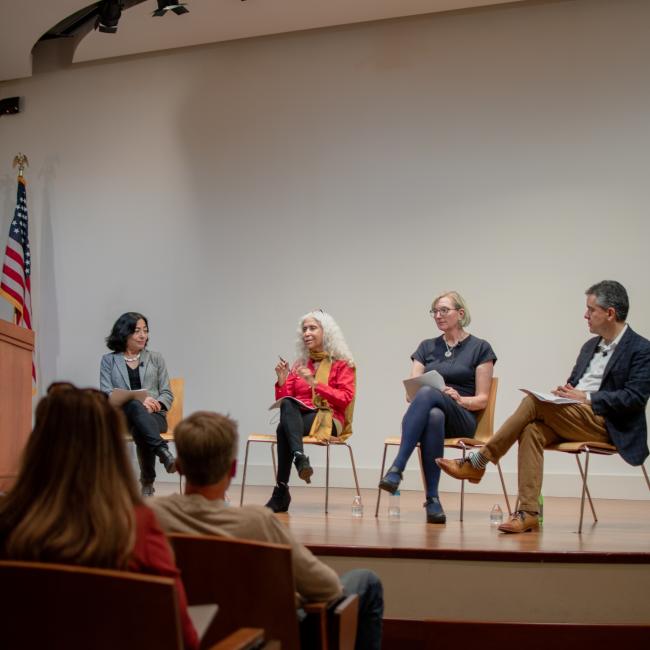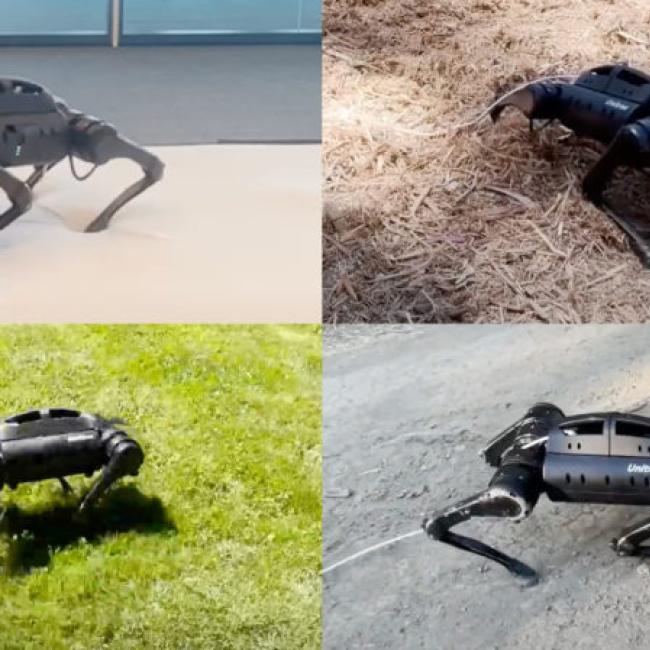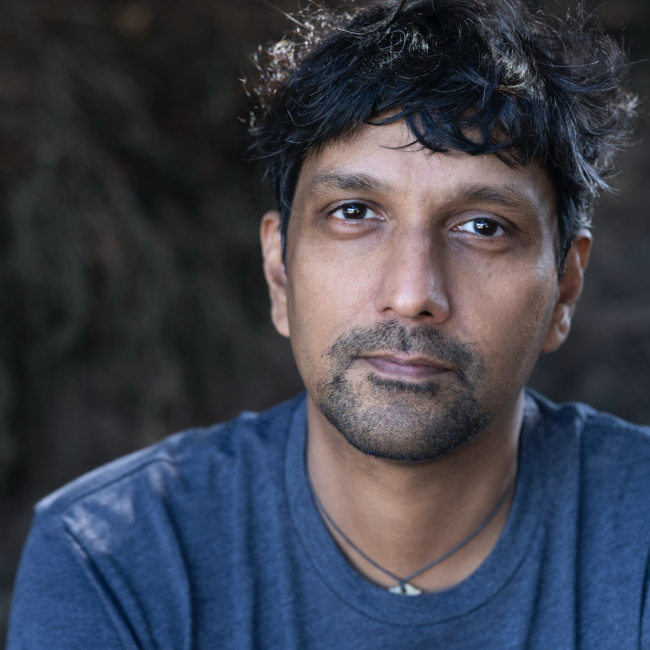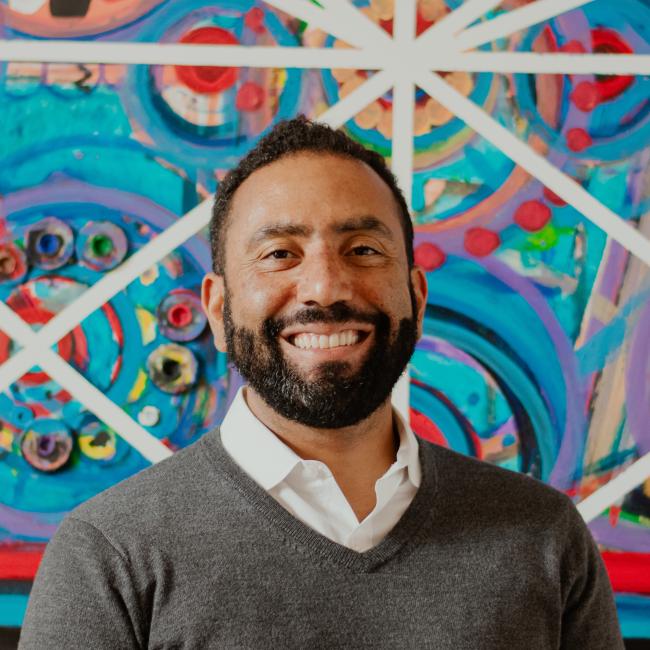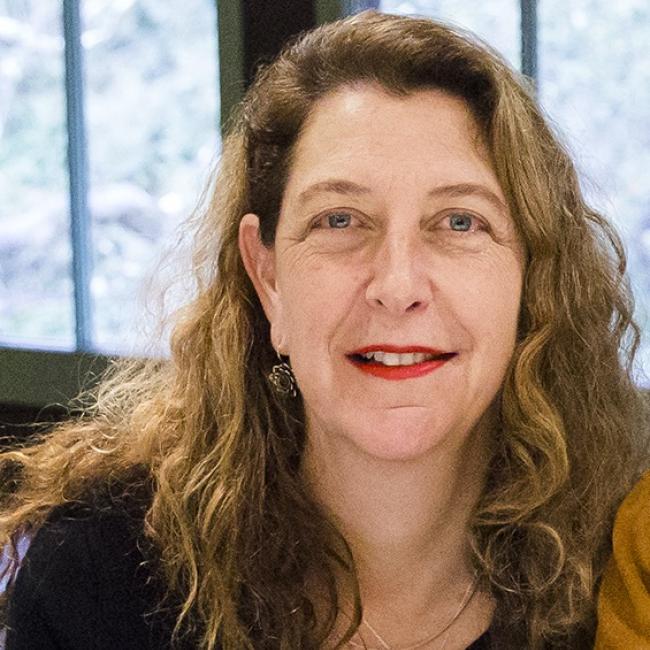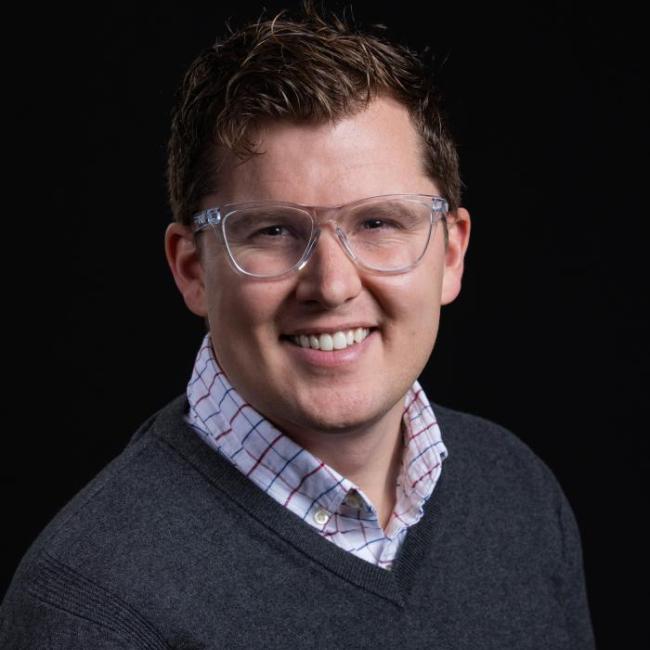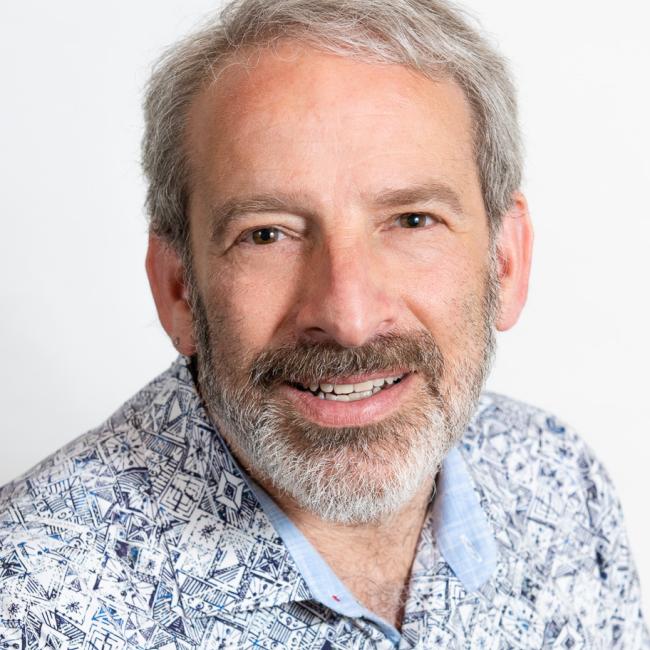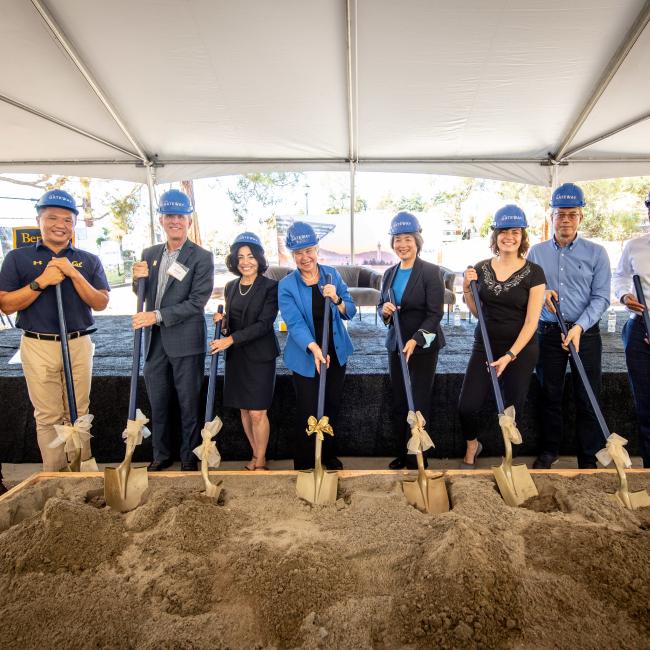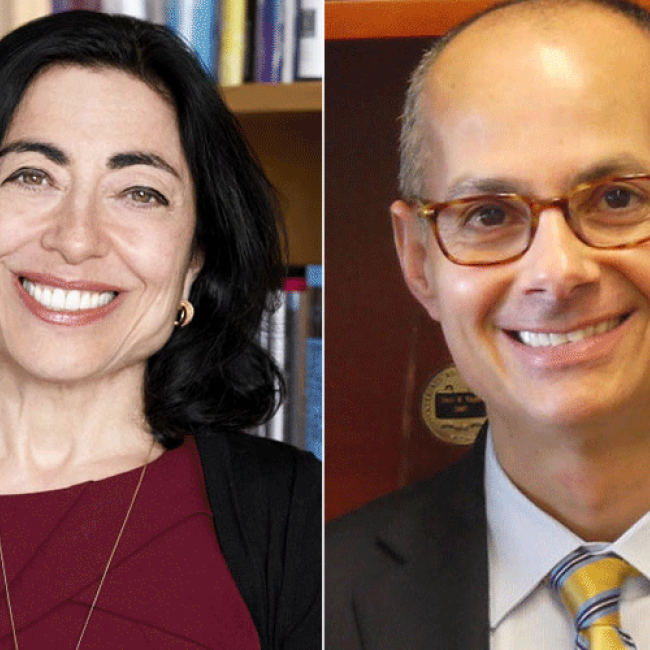National, global momentum show it's time for open science action, experts say
The federal government and research institutions must make science more accessible, reproducible and inclusive, NASA and UC Berkeley leaders said at an Oct. 26 event on campus hosted by the Division of Computing, Data Science, and Society at Berkeley. It’s also urgent to diversify who is doing the scientific work, NASA and Berkeley experts said. While these aren’t new calls to action, national and global momentum makes it the right moment to take decisive action, they said.
Berkeley robots learn to walk on their own in record time
Berkeley researchers may be one step closer to making robot dogs our new best friends. Using advances in machine learning, two separate teams have developed cutting-edge approaches to shorten in-the-field training times for quadruped robots, getting them to walk — and even roll over — in record time. In a first for the robotics field, a team led by Sergey Levine, associate professor of electrical engineering and computer sciences, demonstrated a robot learning to walk without prior training from models and simulations in just 20 minutes. The demonstration marks a significant advancement, as this robot relied solely on trial and error in the field to master the movements necessary to walk and adapt to different settings.
In a Q&A, Karthik Ram discusses his journey from ecology researcher to open science leader
For years, researchers have advocated for scientific results to be more publicly accessible. Amid decreased public trust, open science practices make scientific studies more transparent and reproducible. They can also help accelerate discovery by offering access to the data, code, software and hardware that underpin findings. In a win for open science advocates, the White House Office of Science and Technology Policy (OSTP) recently announced new policy guidance that would make federally-funded research publicly accessible more quickly. We spoke with Karthik Ram, a senior research data scientist at UC Berkeley’s Berkeley Institute for Data Science (BIDS) and co-founder and director of the nonprofit rOpenSci. His career offers a lens into the role computing and data science plays in open science work.
Aaron Streets honored by Popular Science's Brilliant 10
UC Berkeley’s Aaron Streets, associate professor of bioengineering, computational biology and biophysics, has been named to Popular Science’s Brilliant 10, a list honoring trailblazing early-career scientists and engineers who are tackling pressing challenges with innovative solutions. The publication noted Streets’ contributions to the Human Cell Atlas, an international research effort to catalog the types and properties of all cells found in the human body. This project aims to provide unprecedented insights into how the human body functions across ages and diverse global populations and to identify new pathways for monitoring health and treating disease.
Colette Patt joins CDSS as Assistant Dean for Diversity, Equity, Inclusion, Belonging and Justice
UC Berkeley’s Division of Computing, Data Science, and Society (CDSS) has hired Colette Patt as its first-ever assistant dean for diversity, equity, inclusion, belonging and justice (DEIBJ). Patt, a nationally renowned diversity, equity and inclusion scholar and leader, will use a data-driven approach and the CDSS community’s expertise and experiences to help the division incorporate DEIBJ into its education, research and institution. Patt will work collaboratively with CDSS Associate Provost Jennifer Chayes and Catherine Ceniza Choy, a professor of ethnic studies at Berkeley who joined CDSS as associate dean for DEIBJ in July 2021. Patt comes to CDSS at a pivotal moment while the division is under consideration by the University of California to become a college.
A digital revival: Startup Blackbook University continues Berkeley legacy
As a child growing up in Oakland, Miya Hayes remembers the prestige and allure that UC Berkeley represented in her community. Being one of the best academic institutions in the nation, it had a reputation for producing innovative research and changemaking leaders with global impact. Hayes, who hoped to attend Berkeley as an undergraduate, took advanced-level courses at the university in middle school and high school and would often stroll through Sather Gate with her classmates. When she was admitted in fall 1988, Hayes reveled in excitement for her journey at Berkeley to begin, yet also wondered how she would fit in as a mixed-race Black student at a predominantly white school.
Andrew Reddie awarded $1.8M to launch Berkeley Risk and Security Lab
How will emerging technologies shape the future of war and peace? How might a new era of strategic competition between superpowers complicate matters? What steps should governments take to mitigate the risks posed by autonomous technologies used in war? Many of the most important challenges that we face as we move into the 21st century involve problems for which we have no or little data. As a consequence, decision-makers are faced with a policy environment defined by uncertainty.
Ron Cohen named Executive Associate Dean at CDSS
Ron Cohen has recently been appointed the executive associate dean at UC Berkeley’s Division of Computing, Data Science, and Society (CDSS). A distinguished professor in the Departments of Chemistry and Earth and Planetary Science, Cohen joins CDSS after completing two years of service with the Berkeley Division of the Academic Senate in August, first as vice chair and then chair. Cohen was involved in the evolving landscape of data science research and education at Berkeley from its origins, serving on a number of committees and advisory groups that contributed to the creation of CDSS. In 2015, a faculty advisory board recommended the university develop a division on data sciences, which Berkeley officially launched in 2018. A proposal for CDSS to become a college is currently under review at the UC Office of the President and will then require consideration by the UC Regents.
Gateway groundbreaking brings new opportunity for computing, data science
“In many ways, the Gateway is the crown jewel of our $6 billion Light the Way campaign,” said UC Berkeley Chancellor Carol Christ at the Sept. 23 groundbreaking ceremony celebrating the initial phase of construction on the Gateway building. The event helped mark the start of Homecoming weekend, with students, faculty, staff, alumni, parents and guests participating as university leaders discussed the significance of a new interdisciplinary space that aims to transform computing and data science at Berkeley and beyond.
Chancellor Christ noted that Berkeley has raised $5.9 billion in philanthropic support toward the campaign goal with a year and a half to go and looks forward to announcing additional significant gifts in the coming months. An anonymous donor contributed $252 million in 2020 — the second largest gift in the university’s history — to seed construction for the Gateway, which is slated to open during the 2025-26 academic year.
New institute brings together chemistry and machine learning to tackle climate change
Imagine a technology that could remove planet-warming emissions from smokestacks, turn moisture in the air into drinking water and transform carbon dioxide into clean energy. A new UC Berkeley institute will bring together top machine learning and chemistry researchers to make this vision a reality, and a Bay Area foundation is providing a substantial gift to launch and enable this work at UC Berkeley over the next five years. The Bakar Institute of Digital Materials for the Planet aims to develop cost-efficient, easily deployable versions of two classes of ultra porous materials to help limit and address the impacts of climate change.


